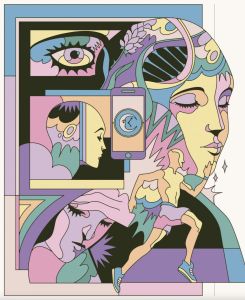Join getAbstract to access the summary!

Join getAbstract to access the summary!
Eleanor Cummins
Why Can’t We Sleep?
We face many obstacles in our search for shut-eye, from bad beds to faulty genes. Fortunately, wrapping our heads around what keeps us awake can help us catch those z’s.
PopSci, 2021
What's inside?
Tossing and turning at night instead of slumbering peacefully can be a nightmare.
Recommendation
The fast-paced world requires you to be productive and alert all the time. However, not getting enough sleep can leave you drowsy, greatly reduce your efficiency at work and in severe cases even lead to death. Eleanor Cummins, science journalist and former assistant editor at Popular Science, summarizes the key issues that keep you from getting a restful slumber and provides some tips about how to overcome these obstacles. If you suffer from insomnia, this article might help you find the rest you need.
Summary
About the Author
Eleanor Cummins is a freelance science journalist whose work has appeared in The Atlantic, National Geographic, The Guardian and Popular Science. She graduated from New York University in the Science, Health and Environmental Reporting Program, where she now also serves as an assistant professor.


















Comment on this summary